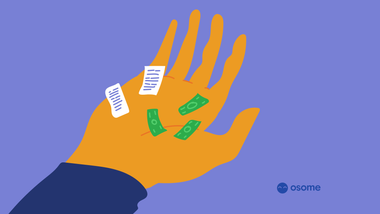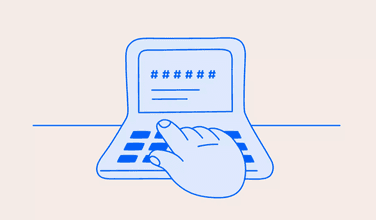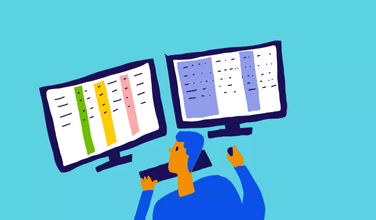How To Reduce Taxable Income for Small Businesses
As a business owner, you can’t escape paying taxes. But what kind of taxes would you have to pay, and how are you taxed?

Many might wonder: what is a small business? Small business is defined as a business structure with less than 50 employees and with an annual turnover of less than £10.2 million. So if you are starting a new small business, you may want to start thinking about the kind of taxes you need to pay.
For those who have been running a small business for some time, check if you’re updated with the latest small business taxes. Whether you are starting out or have been in a small business for some time, it’s time to think of ways to reduce your taxable income in order to maximise your profit margin. In this article, we will share valuable tips to help you reduce your small business’s taxable income.
What Is Considered As Taxable Income?
Before we begin, let’s look at what income is considered taxable. Some business owners often mix up taxable income with non-taxable income. \
Taxable income is a tax that you pay on your income. But not all income is taxable. Certain incomes are taxable, and some are not. Income that is not taxable is usually considered non-taxable, tax-exempted or tax-free.
Here is a list of income that is considered as taxable:
- Business profits: if you are currently a sole trader, the business profits will be taxed once it exceeds the personal allowance of £12,570. For limited companies, you will need to pay corporation tax for business profits you’ve earned.
- Dividends: if you are a company director of a limited company, the first £2,000 dividend payment you take from your company is tax-free. But if you pay yourself more than £2,000, you will pay tax.
- State Benefits: Contribution-based Employment and Support allowance.
- Government grants
- Interest in savings: this refers to the money you’ve accumulated after saving a certain amount in your bank account.
What Are Small Business Taxes I Need to Pay?
Running a business can be quite stressful with the amount of paperwork and taxes to look after. But you don’t have to stress over it if you know the type of small taxes you need to pay. Here are the small business taxes for you to take note of:
Corporation tax
This applies to limited companies, and not sole traders or partnerships. The current corporation tax is set at 19%. This will be calculated after salaries and other expenses have been paid, but before dividends are being drawn out.
Value-added tax (VAT)
VAT is a tax that is normally added to the sale price of any goods and services sold to the customers. The standard VAT rate is 20%. A reduced rate of 5% VAT applies to children’s car seats and energy. If your company is VAT-registered, you will need to charge your customers VAT when they order goods and services from you. You are required to register for VAT if your company’s annual turnover exceeds the VAT threshold of £90,000.
Business Rates
Most small businesses operate from an office, shop or warehouse. If your company operates from these premises, it is likely you’ll be charged a business rate on your property.
For e-commerce businesses, it is common for business owners to run their small businesses from their homes due to economic reasons. For such cases, if you do not have to pay business rates. However, if you employ staff to come and work at your home, you will be charged a business rate on your property, as this will be considered as a business property. Likewise, if you invite a customer to your home to view your goods and services and they purchase the goods from you, you will be charged too.
Eleanor runs a children’s wear and toys business from her home in East London. As she mostly handles her online customers, she doesn’t see the need to open a physical store. But there are times when her business customer requests to view her products. Therefore, she invites them to her place to view the product. During that time, a business deal is being transacted. In this case, Eleanor’s property is likely to be charged a business rate.
Dividend Tax
The first £2,000 dividend tax that you received as a company’s shareholder is tax-free. But if you receive more than £2,000, you will need to pay dividend tax. There are different rates for your dividend tax. The rate you pay will depend on your income tax band. The higher you receive, the more you pay. Here are the individual taxpayer’s rates:
Basic taxpayer’s rate – 7.5%
Higher taxpayer’s rate – 32.5%
Additional taxpayer’s rate – 38.1%
Income Tax
Normally, business owners do not have to pay income tax for the business itself as it only applies to individuals. But if the wage you received as a business owner exceeds your personal allowances of £12,570, you will be liable to pay income tax. Do bear in mind that your other earnings such as dividends, capital gains, and savings interest will be added to your income and this might result in an increase of your income.
National Insurance
It is important that you pay the employer’s portion of National Insurance Contributions (NIC) if you are employing people for your small business. This contribution is known as secondary Class I NIC and it goes directly to HMRC. The rate that businesses should pay is 13.8% in NIC for employees with earnings of more than £9,568 per year.
Capital Gains Tax
Capital Gains tax refers to anything that you sell for a profit. It can be an asset or a property that you sell to another party. For small business owners, if you sell or give away an asset, shares or your entire company, you will have to pay capital gains tax.
You might ask, how much should I pay? It depends on your individual income tax. Basic rate taxpayers will pay 10% while higher and additional rate taxpayers will pay 20%. If you are selling your company’s premises, the rate will be 18% for basic-rate taxpayers and 28% for higher or additional rate taxpayers.
Sam produces board game parts in the UK. It’s a small business with about 15 administrative and operational staff. He owns the main office and a small warehouse that produces the game parts. However, last year he decided to sell his business to an interested games company. To determine the sale proceeds that he gains from selling his business property, he calculates the following:
When he purchases the business property: £100,000
When he sells the business property: £500,000
The total taxable gain or net profit: £500,000 - £100,000 = £400,000
Along the way, he refurbished his property by building an extension to his warehouse and upgrading the office pantry. The cost of the refurbishment is £50,000. For 2021-2022, the capital gains tax allowance for property is capped at £12,300. This means you don’t have to pay capital gains tax for the first £12,300 you earned from the sale of your property.
To work out his capital gain tax, he will need to deduct his refurbished cost and allowance:
£400,000 - £50,000 = £350,000
£350,000 – £12,300 = £337,700
£337,700 is the capital gain that Sam has to pay on the business property and he will have to work out the rates he needs to pay.
How Do I Reduce Taxable Income for My Small Business?
Now that we have a better understanding of the small business taxes, it’s time to look at ways to ease this financial burden. Besides, the purpose of reducing taxable income is to expand profit margins and strengthen the company’s overall business, isn’t it?
There are a few ways to reduce taxable income for your small business. One way is to take advantage of the available business tax relief that is applicable to you. Another way is to look at the deductible expenses of your business.
What Are Tax-Deductible Expenses?
Tax-deductible expenses are things that you spend for your business. For instance, you need to buy a fleet of new vans for your business to fulfil your orders, this purchase will be considered as tax-deductible expenses. You will also need fleet management software to manage your fleet more efficiently and effectively. One of the most common tax-deductible expenses is travelling. Most people travel on business trips, and this will also be considered tax-deductible.
Here are some of the tax-deductible expenses:
- Office costs
- Travel cost for work
- Clothing
- Staff costs
- Marketing
- Stock and raw materials
- Running of premises
However, do bear in mind that tax-deductible expenses must be for business purposes, and not for personal use. It’s very common for business owners to mix up expenses for business purposes with personal use.
Seth goes on a business trip from his home from North London to his office branch in Cambridge once every two weeks. These business-related trips incur certain expenses such as petrol fees and mileage. As such, these will be considered as tax-deductible expenses. But if he were to pick his friend up from Cambridge and send him to another location for running errands that are not related to his business, whatever expenses he has incurred from that trip will not be claimable.
Do remember that these expenses must be properly documented so that you can claim your tax back.
Are There Any Business Tax Relief I Can Claim?
The UK government has introduced a number of business tax relief to help small businesses to ease their financial burden. Let’s take a look at some of the business tax relief you might be able to claim:
Business Rates Relief
Business property is taxable, and depending on the location, it can be quite costly. The good news is you do not have to pay a business rate on your property with a rateable value of £12,000 or less. You can apply for small business rate relief provided your property has a rateable value of £15,000 or less, and you must operate your business from this property. For those who are starting out a small business, you may also apply for Enterprise Zone business relief. New business owners can get up to £55,000 a year over five years.
Employment Allowance (National Insurance Relief)
For companies that employ staff and are paying Class 1 employers’ National Insurance, you are entitled to National Insurance relief of up to £4,000 for your business, not each employee. This relief allows you to pay fewer employers’ Class 1 National Insurance contributions when you run your payroll. The relief will end once you reach the £4,000 threshold or end of the tax year, whichever is sooner.
Annual Investment Allowance
Annual Investment Allowance is a capital allowance that allows you to deduct the cost of plant and machinery from your profit when you pay tax. For instance, if you have purchased new computers for your staff and equipment, you are able to claim this relief. Thankfully, the government has extended the £1 million cap on the Annual Investment Allowance until 2022. So this is a good time to claim this relief if you are purchasing new assets for your business.
Business Asset Disposal Relief
Formerly known as Entrepreneurs’ Relief, this reduces the rate of tax paid on your assets when you sell part of or the entire business. It allows you to pay tax at 10% on all gains on qualifying assets. If you are selling part of or the entire business, you need to apply for at least 2 years from the date you sell your business in order to qualify for the relief. You must be a sole trader or business partner. Likewise, you must own the business for at least 2 years.
Summing Up
Knowing the ways to reduce your taxable income will certainly improve your business’s tax efficiency. This is important for many small businesses as the key objective is to maximise your profits. At this point, if you would like to know more about small business tax relief and tax-deductible expenses, come and chat with our experienced accountants today!







